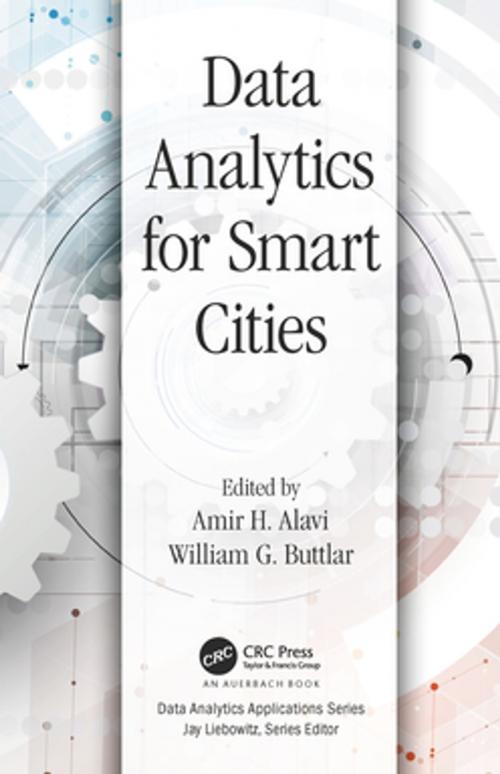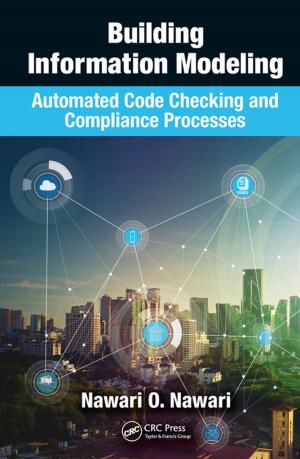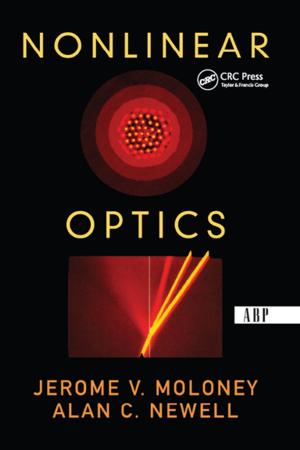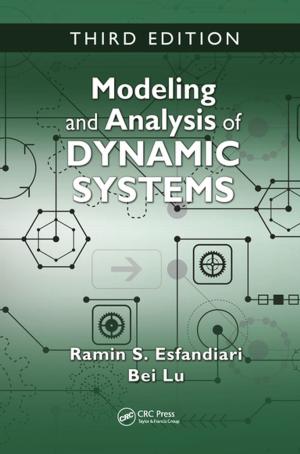Data Analytics for Smart Cities
Nonfiction, Science & Nature, Mathematics, Statistics, Computers, Advanced Computing, Information Technology, Database Management| Author: | ISBN: | 9780429786624 | |
| Publisher: | CRC Press | Publication: | October 26, 2018 |
| Imprint: | Auerbach Publications | Language: | English |
| Author: | |
| ISBN: | 9780429786624 |
| Publisher: | CRC Press |
| Publication: | October 26, 2018 |
| Imprint: | Auerbach Publications |
| Language: | English |
The development of smart cities is one of the most important challenges over the next few decades. Governments and companies are leveraging billions of dollars in public and private funds for smart cities. Next generation smart cities are heavily dependent on distributed smart sensing systems and devices to monitor the urban infrastructure. The smart sensor networks serve as autonomous intelligent nodes to measure a variety of physical or environmental parameters. They should react in time, establish automated control, and collect information for intelligent decision-making. In this context, one of the major tasks is to develop advanced frameworks for the interpretation of the huge amount of information provided by the emerging testing and monitoring systems.
Data Analytics for Smart Cities brings together some of the most exciting new developments in the area of integrating advanced data analytics systems into smart cities along with complementary technological paradigms such as cloud computing and Internet of Things (IoT). The book serves as a reference for researchers and engineers in domains of advanced computation, optimization, and data mining for smart civil infrastructure condition assessment, dynamic visualization, intelligent transportation systems (ITS), cyber-physical systems, and smart construction technologies. The chapters are presented in a hands-on manner to facilitate researchers in tackling applications.
Arguably, data analytics technologies play a key role in tackling the challenge of creating smart cities. Data analytics applications involve collecting, integrating, and preparing time- and space-dependent data produced by sensors, complex engineered systems, and physical assets, followed by developing and testing analytical models to verify the accuracy of results. This book covers this multidisciplinary field and examines multiple paradigms such as machine learning, pattern recognition, statistics, intelligent databases, knowledge acquisition, data visualization, high performance computing, and expert systems. The book explores new territory by discussing the cutting-edge concept of Big Data analytics for interpreting massive amounts of data in smart city applications.
The development of smart cities is one of the most important challenges over the next few decades. Governments and companies are leveraging billions of dollars in public and private funds for smart cities. Next generation smart cities are heavily dependent on distributed smart sensing systems and devices to monitor the urban infrastructure. The smart sensor networks serve as autonomous intelligent nodes to measure a variety of physical or environmental parameters. They should react in time, establish automated control, and collect information for intelligent decision-making. In this context, one of the major tasks is to develop advanced frameworks for the interpretation of the huge amount of information provided by the emerging testing and monitoring systems.
Data Analytics for Smart Cities brings together some of the most exciting new developments in the area of integrating advanced data analytics systems into smart cities along with complementary technological paradigms such as cloud computing and Internet of Things (IoT). The book serves as a reference for researchers and engineers in domains of advanced computation, optimization, and data mining for smart civil infrastructure condition assessment, dynamic visualization, intelligent transportation systems (ITS), cyber-physical systems, and smart construction technologies. The chapters are presented in a hands-on manner to facilitate researchers in tackling applications.
Arguably, data analytics technologies play a key role in tackling the challenge of creating smart cities. Data analytics applications involve collecting, integrating, and preparing time- and space-dependent data produced by sensors, complex engineered systems, and physical assets, followed by developing and testing analytical models to verify the accuracy of results. This book covers this multidisciplinary field and examines multiple paradigms such as machine learning, pattern recognition, statistics, intelligent databases, knowledge acquisition, data visualization, high performance computing, and expert systems. The book explores new territory by discussing the cutting-edge concept of Big Data analytics for interpreting massive amounts of data in smart city applications.















